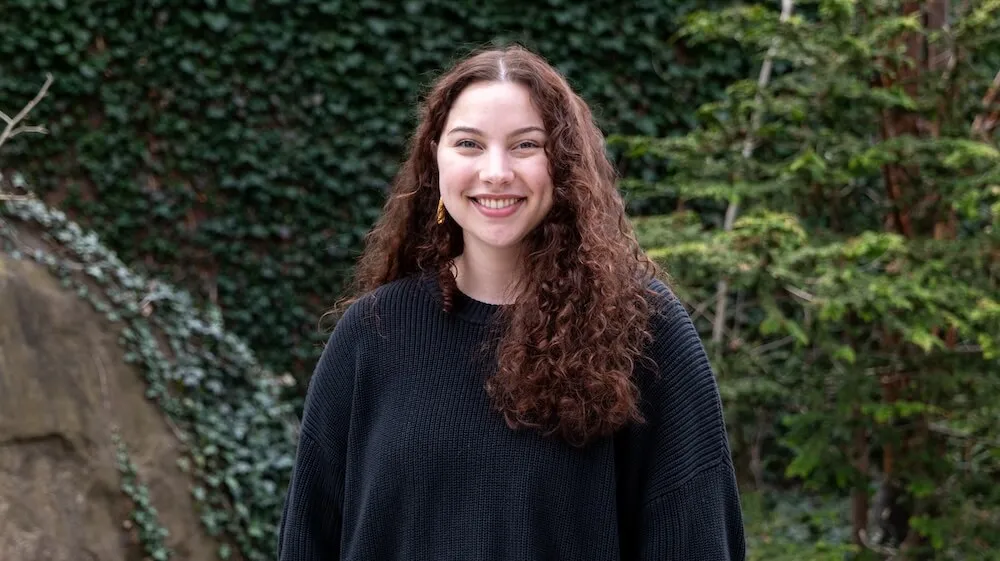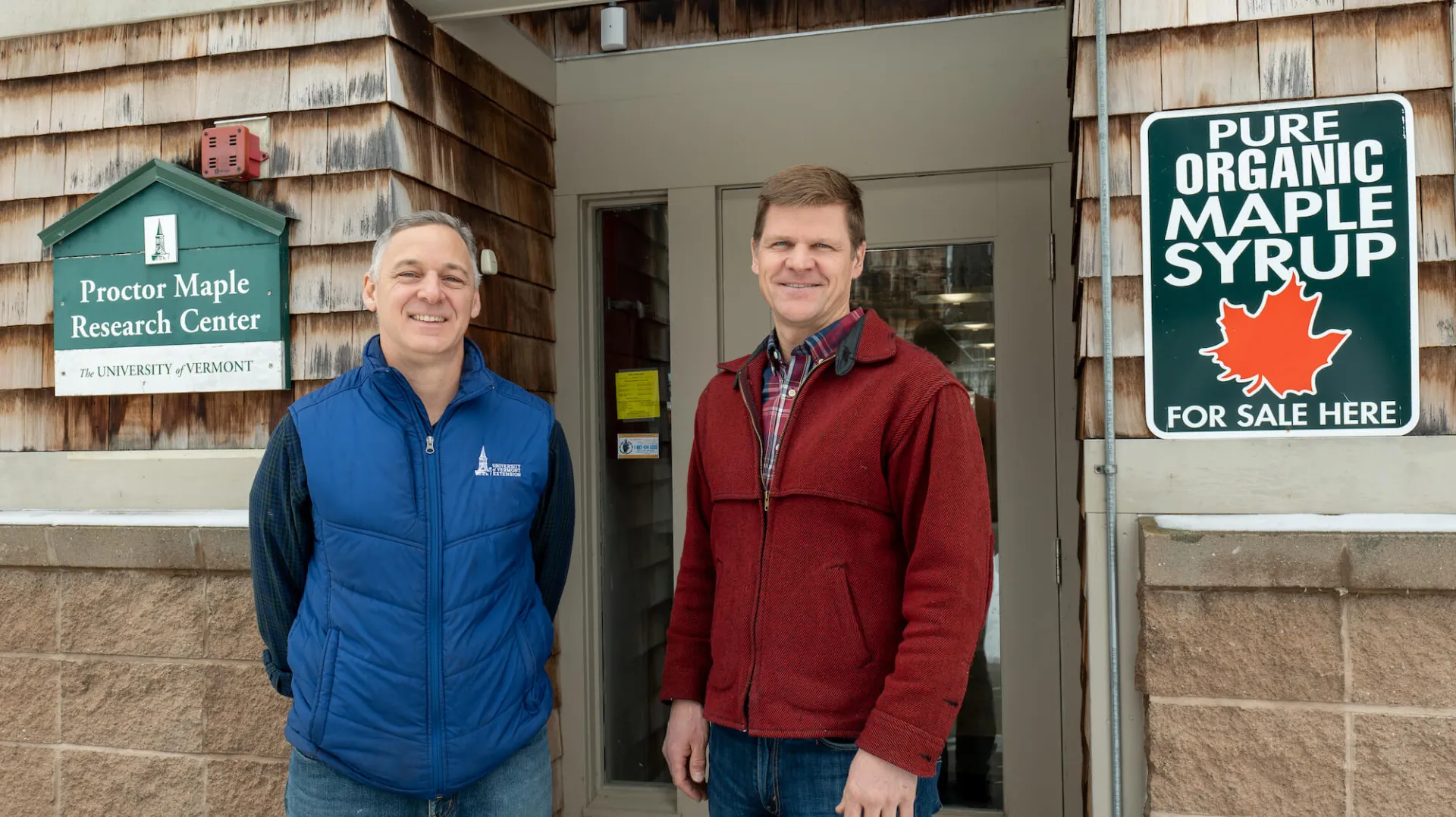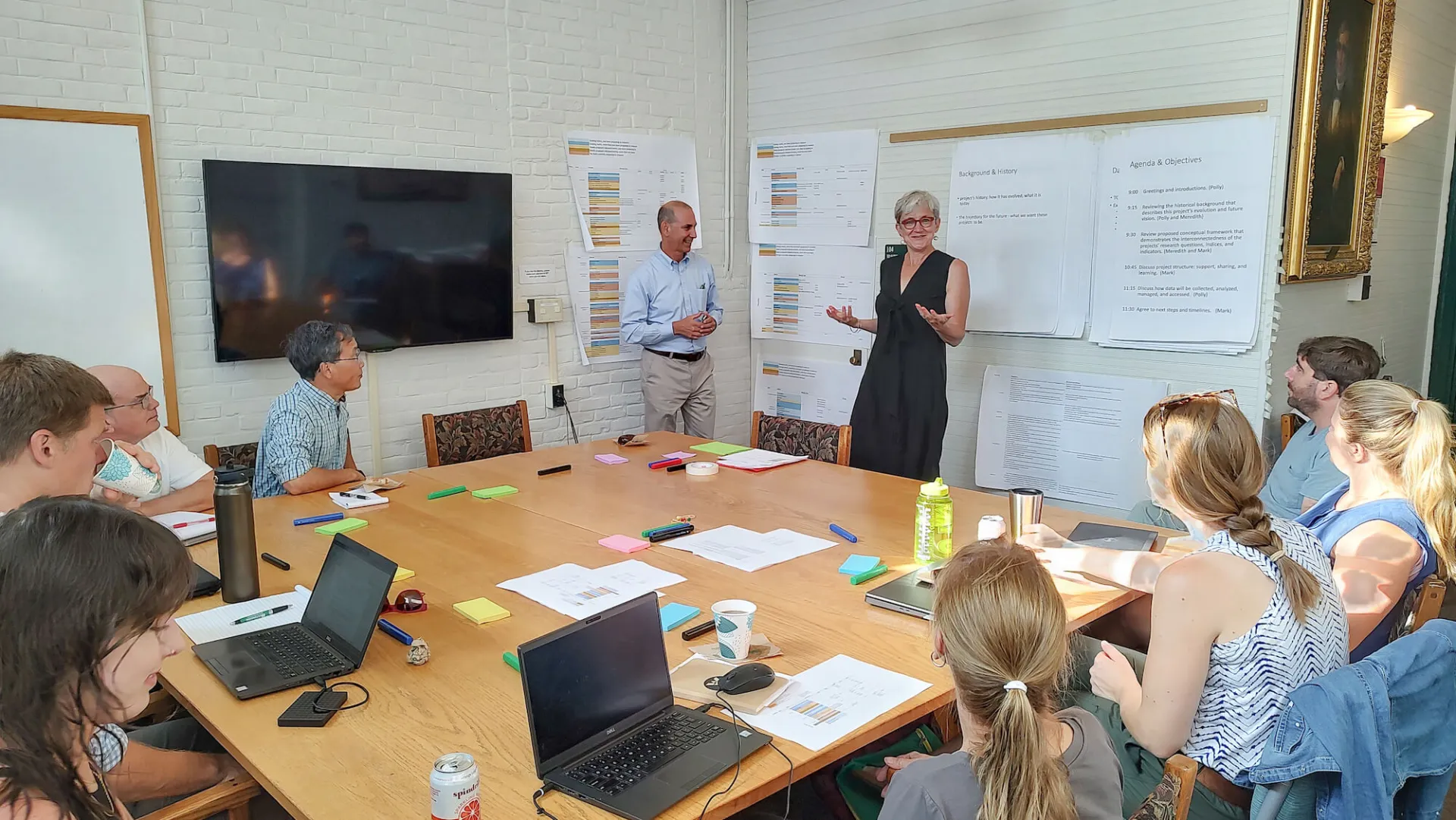Projects
Maple Sustainability Indicators Initiative
"Maple syrup is an iconic product with a long cultural history in the northeastern United States. Increased consumer demand for sustainable food choices creates a great opportunity for maple products. Yet, many aspects of maple's social, environmental and economic impacts need better measurement for an accurate understanding of the impact of this rapidly growing sector," said principal investigator Mark Cannella, Extension Associate Professor and Farm Business Specialist.
This project seeks to develop a multi-dimensional framework for measuring maple food system sustainability, focusing on the interactions between maple producers, forests, markets, consumers, and communities. The U.S. maple syrup crop doubled from 2010-2020, and Vermont is the largest producer of maple in the United States. The establishment of measurements across multiple dimensions and working with community partners will be critical to maintaining a course of sustainable sector development.
PI: Mark Cannella
Co-PIs: Mark Isselhardt, Qingbin Wang, Zachary Smith, Anthony D'Amato
PostDoc: Emmanuel Owoicho Abah
Community Partners: Vermont Maple Sugar Makers' Association, Bascom Maple Farms, New York State Maple Producers' Association, Audubon Vermont
Plant-based Proteins as Part of Sustainable Food Systems in the Northeast
This project will carry out a transdisciplinary collaboration between university researchers and community partners to study and examine the extent to which VT and the Northeast (NE) region can produce plant-based protein foods, consumer perceptions of plant-based protein foods vis-a-vis meat and other animal protein foods in the NE, manufacturer and farmer perceptions of producing plant-based proteins as part of their agricultural enterprise, and environmental sustainability implications related to water quality and climate change for an increase in plant-based protein crop production.
PI: Anaka Aiyar
Co-PIs: Emily Belarmino, Heather Darby, Joshua Faulkner
PostDoc: Emma Tracy
Community Partners: Vermont Sustainable Jobs Fund, Innovative Management and Agriculture Consulting
Sustainability Metrics for Consumer-Facing Farms
Consumer-facing Agriculture (CFA), or farms that sell directly to consumers are an important part of Vermont's agricultural economy, working landscape, and culture. Understanding how economic, environmental, social, production, and human sustainability interact in this system is important as it grows in Vermont, the Northeast, and beyond. As this industry continues to grow, it's important to understand the sustainability dimensions and how they interact with other aspects of sustainability in our food system. "Our project combines a large team of researchers, including many from UVM Extension. We will measure sustainability on what we call Consumer Facing Agriculture farms, those who host agritourism activities and/or sell food to direct markets. Our emphasis will be to build on metrics the farmers find important and can be used to improve their management, marketing, and advocacy," said principal investigator and Professor of Community Development and Applied Economics David Conner.
PI: David Conner
Co-PIs: Lisa Chase, Maire Folan, Ike Leslie, Gillian Galford
PostDoc: Dr. Josh Taylor
Community Partners: VAAFM, Howling Wolf Farm, Vermont Sustainable Jobs Fund, NOFA-VT, Vermont Fresh Network
Social Values, Identity, and Sustainability Outcomes: Measure Social Processes in Agriculture
Measuring social sustainability is a challenge, yet an integral piece of understanding how to improve sustainability in agriculture and beyond, as it underlies the entirety of food systems' sustainability outcomes. This project seeks to develop a method for measuring farmer and stakeholder values and how those values drive farmer decision-making.
Joe Ament, Lecturer of Community Development and Applied Economics and principal investigator, said, "Our project focuses on measuring values, motivations, and identity of farmers to understand what drives decision-making on farms. We are particularly interested in how motivations around dimensions of sustainability affect a farmer's on-field sustainability performance."
The research team will develop a survey module that captures farmers' values and highlights how those values vary across scale and identity. This data will inform policy mechanisms and improve our food system. This research is well-position to support the UVM Food Systems Research Center in becoming a global leader in measuring the social side of the food system and how this dimension integrates and influences other pieces of sustainability in the food system.
PI: Joe Ament
Co-PIs: Daniel Tobin, Ike Leslie, Amy Trubek, Scott Merrill, Caitlin Morgan
Postdoc: Barituka Bekee
Community Partners: NOFA-VT, JG Research and Evaluation, Land for Good
Food Systems Sustainability Starts with Soil
Soils are foundational to the food system, and understanding soil sustainability is vital to our future. Not only are soils essential for producing food and sequestering carbon, they also act as important pieces of rural economies and support biodiversity. Farmers continually state soil should be a top priority for research and outreach. Our project seeks to untangle how soil health contributes to the five dimensions of sustainability and how the five dimensions constrain or enable soil health. Through key measurements focused on soil biology, chemistry, and physics, we can find answers to these questions and more.
PI: Gillian Galford
Co-PIs: Brendan Fisher, Deb Neher, Heather Darby, Eric von Wettberg, Courtney Hammond-Wagner
PostDoc: Cari Ritzenthaler
Community Partners: American Farmland Trust, VAAFM, Vermont Land Trust, Borderview Research Farm
Sustainability Metrics News

Meet Tessa Lawler, Research Project Coordinator
If you have questions about the Sustainability Metrics project, contact Tessa Lawler (tessa.lawer@uvm.edu).


